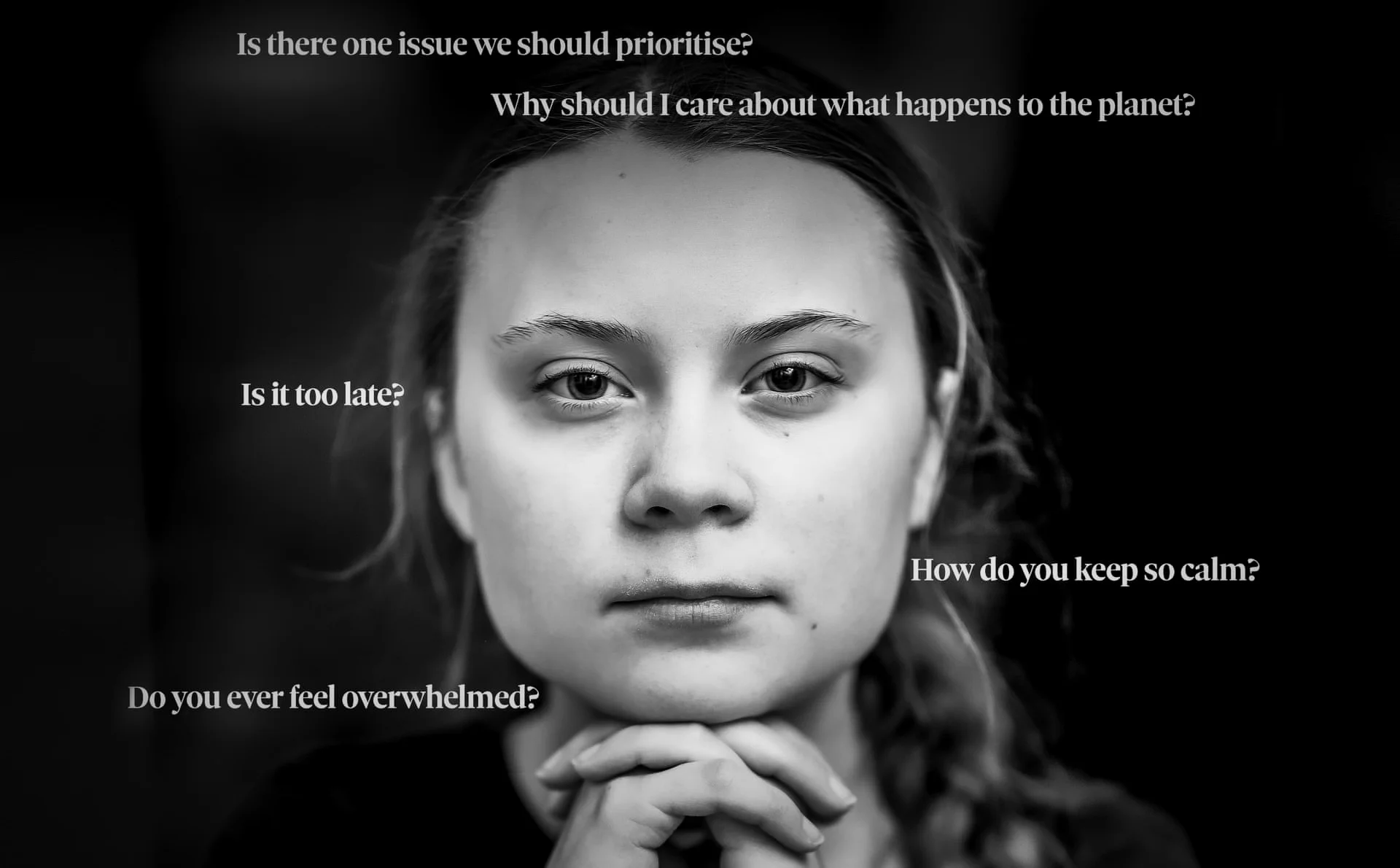“I don’t care about age. Nor do I care about those who do not accept the science. I don’t have as much experience, and therefore I listen more. But I also have the right to express my opinion, no matter my age. Also, being young is a great advantage, since we see the world from a new perspective and we are not afraid to make radical changes.”
“Today I choose life,” the late American writer and photographer Kevyn Aucoin once said. “Every morning, when I wake up, I can choose joy, happiness, negativity, pain. To feel the freedom that comes from being able to continue to make mistakes and choices, today I choose to to feel life. Not to deny my humanity, but to embrace it.”
Aucoin died in 2002 from complications from a rare pituitary tumour. He had suffered from acromegaly and its accompanying pain for much of his life, but the tumour had gone undiagnosed.
I couldn’t help but think of those words — “not to deny my humanity, but to embrace it” — as I read a remarkable Q-&-A with-a-difference in Sunday’s UK Observer with teen activist Greta Thunberg.
Thunberg is everywhere these days, it seems, despite being a virtual unknown to the outside world just a year ago. This time last year, Scottish-born playwright, novelist and Sunday Observer columnist Ali Smith wrote, “she was unimaginable. Then, pretty much from nowhere, there she was” small and slight, a girl just turned 16, the way-too-young odd person out on a panel of adults sitting in front of the world’s economic powers at Davos, in January. Unshowy and serious, careful, firm, she said it: Our house is on fire.”
Q-&-A articles are a dime-a-dozen these days. Just two weeks earlier, in the same newspaper, the Guardian and Sunday Observer arranged a get-to-know-you conference call between Thunberg, in Stockholm (she doesn’t fly, in order to her part in combatting carbon emissions), and Green New Deal architect and Democrat activist unlikeAlexandria Ocasio-Cortez, in Washington, DC. The 16-year-old and the 29-year-old, linked by present-day wireless satellite technology and doing their part to save the planet’s fragile, increasingly threatened ecosystem. If this is to be the future of the war on our growing climate crisis, it has a distinctively young face.
It was a lively conversation, high in energy and ideas, and spiritually affirming.
This past weekend, the Sunday Observer took it up a level, encouraging celebrities and ordinary, everyday readers to ask Thunberg whatever they wanted. From Game of Thrones actor Maisie Williams, who virtually grew up on-camera — she
was 14 when Game of Thrones began and 22 when it ended — and UK Labour leader Jeremy Corbyn, to primatologist Jane Goodall, they did just that.
What was truly remarkable in Thunberg’s answers was how concise, clear-headed and conscientious her answers were. Her words were honest, unguarded and obviously unrehearsed. These were words spoken in the moment, from the heart, and not once was there a hint of handlers, minders and public-relations experts in her answers.
I’ve included a link here, and the whole thing is worth reading, not just because of her youthful age but because there are some genuine ideas here.
Thunberg is bold and fearless, and utterly committed to the cause — and yet, oddly open. Nothing about her grates. She’s serious, but not a scold. The climate emergency is a real, genuine crisis, and yet Thunberg is clearly ready for what will be a nasty, protracted, bitter fight against the combined power and vested interests of Big Oil, Big Pharma and Big Brother. “Hers is a voice totally unlike the world’s usual power-cacophony,” Smith wrote in her Observer preamble, clean, simple, inclusive. She cuts through the media white noise and political rabble-rousing to get to the essentials . . .This is a communal voice . . . (with) transformatory impact and consequences.”
Of all the questions that struck me, it was one from a regular reader — anonymous, posed online — that hit home, for me. It wasn’t so much the question, though many, probably too many, are asking it, as it was Thunberg answer.
It was the clarity and maturity of that answer, again unrehearsed and uncoached, that struck a chord deep within me.
I am an old man without children, the comment read. Why should I care about what happens to the planet after my death?
“Maybe you believe in something?” was Thunberg’s reply. “Like karma, faith? Or morality? Or just because it’s the right thing to do.”
Just — because.


